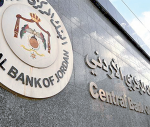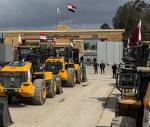You are here
Gaza: besieged, sanctioned and severly punished
Jun 19,2018 - Last updated at Jun 19,2018
A shocking video of Palestinian police attacking peaceful demonstrators in Ramallah was broadcast on many news outlets last week. Young unarmed protesters, demanding the lifting of severe punitive measures imposed upon Gaza, not by Israel, but by the Palestinian Authority were beaten up with clubs, kicked, punched and dragged on the streets with visible cruelty.
The demonstration in question was not the first of its kind, neither was the harsh PA police crackdown. Similar demonstrations had recently been taking place as the Gaza tragedy is becoming harder for the West Bank Palestinians to keep quiet about.
Gaza has been placed under a very tight siege from land, sea and sky for over ten years, by both Israel and Egypt. Recently, the Palestinian Authority has joined in with its own punitive package that included suspension of salary payments, power cuts, reduced supplies and restricted movement, even for severe humanitarian and medical necessities.
On top of the siege-related hardships, the suffering of the two million Palestinians in Gaza, rightly described as the largest open air existing prison, has been steadily compounded by Israeli wars and daily strikes that destroyed much of the narrow strip and its dilapidated infrastructure.
Israel’s hostile plan for suffocating Gaza and making the life of its inhabitants intolerable is well known. What is hard to understand is the position of the Palestinian Authority towards the blockaded strip.
Hamas, which controls Gaza since 2006, has been condemned for staging a coup against the legitimate Authority of Ramallah a decade ago.
According to a documented Vanity Fair article (March 8, 2008) by David Rose titled the Gaza Bomb Shell, the real coup was actually cooked by the Bush administration and some Palestinian factions to topple the Hamas government, which had won democratically organised general elections in 2006.
The Hamas electoral victory, which came as a stunning surprise to all those who were certain about an adverse outcome, had to be overturned by that US sponsored coup, which quickly crumbled leaving Hamas stronger than ever before. (Please Google the David Rose article).
Since then, many reconciliation attempts to end the resulting Palestinian rift had failed. The last was an Egyptian initiative less than a year ago, which although managed to cover a number of constructive and promising grounds, it ended up bogged down in the same way as previous attempts had.
Some irreconcilable issues, such as the Hamas weapons and resistance infrastructure, demanded dissolved by the PA, were postponed to avoid an early negotiations breakdown. But even after the Hamas administration agreed to surrender its entire authority to the PA government under Prime Minister Rami Hamdallah, including controlling the Rafah crossing with Egypt, meaningful progress was hardly achieved.
The breaking point came when Hamas was blamed for an attempt at the life of Prime Minister Hamdallah during his last visit to Gaza. Hamas was blamed, indeed condemned, for organising the assassination with the intent of sabotaging the Egyptian brokered reconciliation.
Within the ensuing messy climate between the two sides, exchange of abusive scorn, denials and accusations, Gaza was subjected to additional punitive measures by the Ramallah authority rather than alleviating the existing ones as was hoped.
The obvious result was rapid aggravation of the Gaza humanitarian and living conditions to the point where many international organisations warned of an imminent irreversible disaster.
The Ramallah demonstrations protesting the PA measures represent a new development not quite familiar hitherto. That definitely attests to the gravity of the crisis, as it actually does reveal that the PA measures, affecting the lives of two million Palestinians in Gaza, not Hamas, have surpassed all tolerable limits.
The Ramallah protesters were peaceful, they were expressing their legitimate support for their fellow citizens in Gaza, they were only calling for the lifting of unjustified collective punitive measures against innocent beleaguered population suffering for a whole decade from Israel’s cruelty and punishment and they were exercising their legal right to express their opinion. Thus, they do not deserve to be so brutally attacked by their own supposedly national liberating authority. That is a peculiar travesty that can hardly find parallels in known history.
The crackdown is unlikely to put an end to the protests. Wisdom dictates that the concerned authorities better view the Ramallah eruptions as early warning signs that the mounting pressure in Gaza is moving to the West Bank and will likely escalate. Pressure leads to explosion. A whole decade of building up pressure in Gaza is more than enough to lead to an imminant explosion. Suppressing peoples’ noble sentiments in Ramallah would only add to the pressure and magnify the inevitable explosion.














